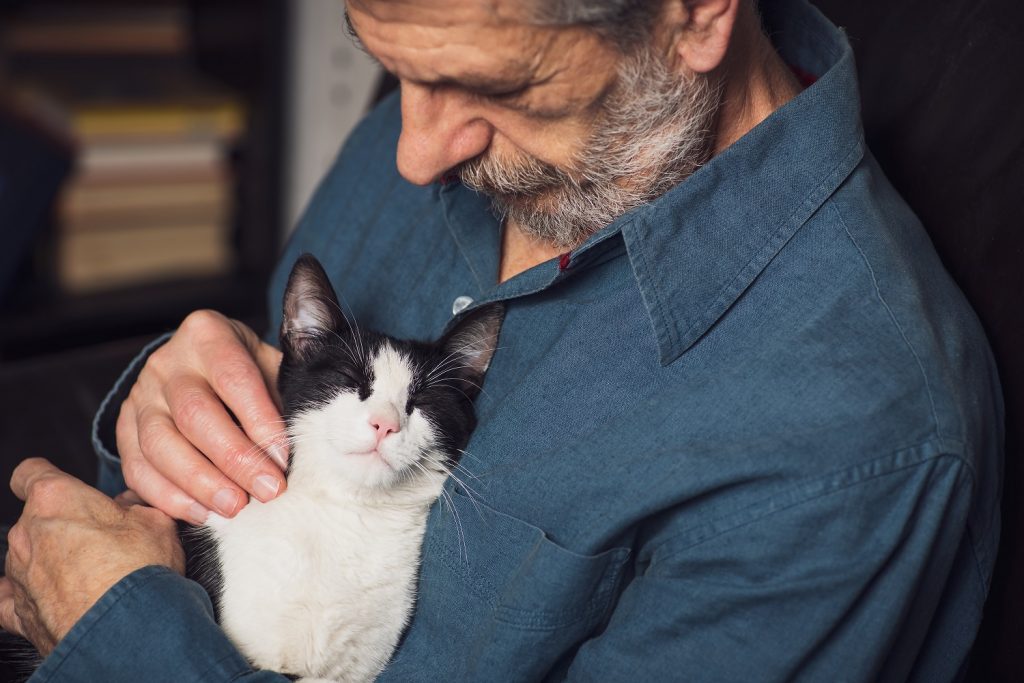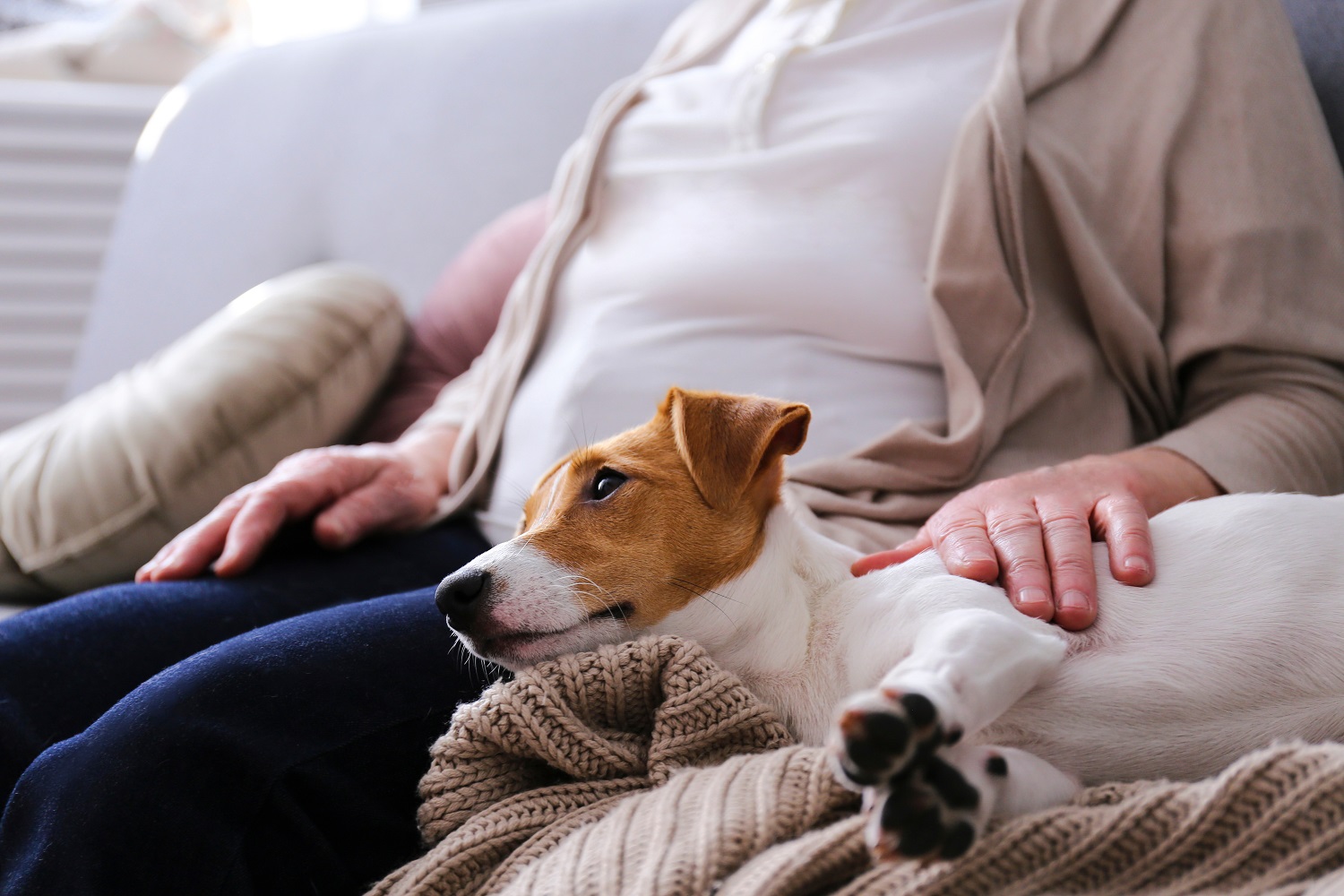Animal Chatter
By Iris Winston
Caregiving is a two-way street. Just as we look after the animals we love, so they return that love and caring in spades. And the stronger the bond between the animal and the human, the stronger the love and understanding of just what the other needs.

I am not talking only about dogs with jobs, who are trained for specific tasks: Guide dogs who function as their blind partner’s eyes, hearing dogs who work as their partner’s ears and police dogs who are wonderfully suited to their tasks and often amazing in their understanding of just what their people need. So are the companion animals who help people with post-traumatic stress disorder to regain peace. But many dogs without special training are very intuitive in the ways that they can help their humans.
We frequently read about pet dogs who wake their owners to alert them to danger whether it’s the start of a fire or a possible break-in. We hear of children being rescued from drowning by the family dog or of cats who find their way over long distances to return to their owners.
Even when there is no animal heroism involved, the companionship that a pet provides brings comfort and joy every day. In clinical terms, having a pet counters social isolation simply because the animal is at the individual’s side. Nothing brightens a day as quickly as a smiling dog wagging his tail or a cat gazing at you with a “feed me now, please” look on her face.
Having the responsibility of caring for a four-legged friend is a reward in itself. It gives a human being living alone a reason to get up in the morning and encourages the person to have a regular routine, whether it’s starting the day by checking a cat’s litter box, taking the dog for an early morning stroll or regularly stocking groceries for pets and people.

There is also plenty of comfort to be gained from sitting and stroking the furry one. The calming effect of giving gentle pats and strokes to your dog or cat brings with it the added benefit of lowering a person’s blood pressure, as well as soothing the animal. The stress of the day is reduced for both as they relax together.
Also part of the two-sided coin of caring for both pet and human is the joy of play. Being active is good for everyone’s health. Dangling a small toy on a string for a young cat might not be as effective as a long walk in the country with a dog but both mean interaction, connection and movement. Dogs are particularly good medicine for people who have cardiac issues or are overweight, simply because exercise helps ease these and other health issues.
All dogs seem to have accurate internal clocks pointing out that walk time is upon them. They might announce this by going to the door, looking at the hook where the leash is hanging or just being restless, but they leave little doubt about their interest in a trip to the great outdoors.
As soon as you respond to the walk call, the unspoken promise of a further benefit of pet ownership is introduced. Animals are social magnets. Many of the people you pass smile at your dog or comment on his looks or friendliness. Meeting another person with a dog is an opportunity for the dogs to greet each other and for you to chat to the other owner. If you happen to meet regularly, whether intentionally or by chance, it’s almost certain that you will learn the dog’s name before you know the owner’s. Some of the other animal lovers you meet on daily walks may become friends, just as parents of school-age children may graduate from acquaintanceship to friendship. Certainly, I have made good friends through my dog connections over the years.
Animals are also very good listeners. As they look into your eyes, they seem to appreciate what you are saying, even if they don’t nod in agreement. They may not understand every word, though their vocabulary is often more extensive than we realize. In any case, they always sense your mood, give unconditional love and comfort and are there for you at all times. Who could ask for more from any caregiver?
Almonte, Ontario, writer Iris Winston is a former executive director of the Canadian Federation of Humane Societies. She has been an animal lover all her life. Her pets have always been important members of her family.






